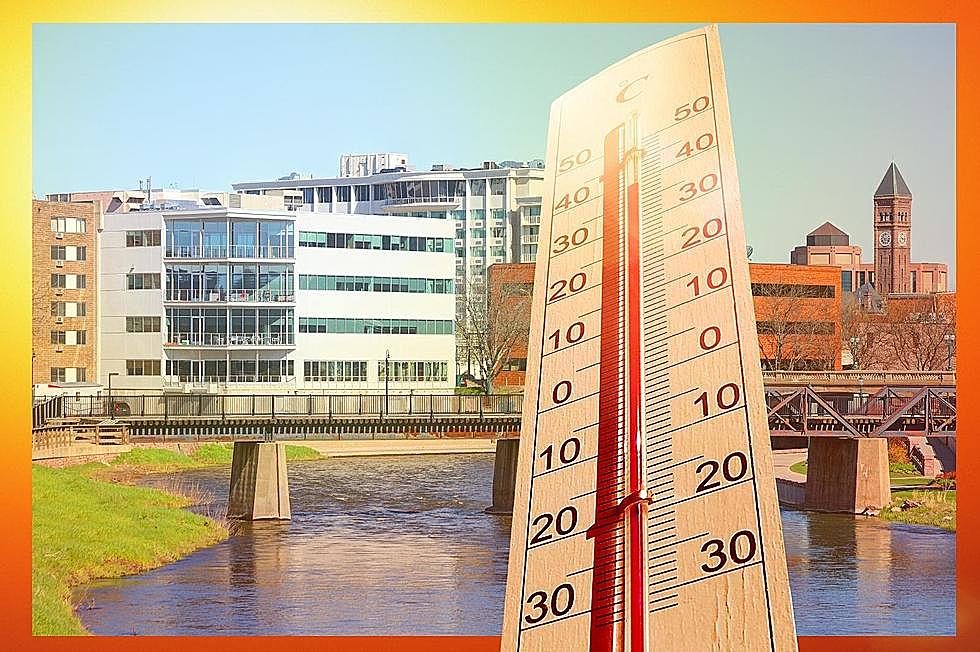
Pro Tax Tips to Help You Get Your Maximum Refund This Year
The 2023 tax season is here and there are many factors at play when it comes to making sure you get the maximum tax refund possible.
There are tax law changes, special credits, unusual deductions, and many more things to consider before filing your 2023 taxes this year. If you're looking for tax help, H&R Block in Faribault, Owatonna, and Lakeville has the following tax tips available for you.
H&R Block 2023 Tax Tips
1. How Long Should You Keep Your Tax Records?
If you are wondering how long you should keep tax records, the answer is pretty clear. In most cases, you should plan on keeping your returns along with any supporting documents for a period of at least three years following the date you filed or the due date of your tax return, whichever's later. You should keep every tax return and supporting forms such as W2s, 1099s, expense tracking, mileage logs, records supporting itemized deductions, and other documents keeping tax returns for the three-year time period is tied to the IRS statute of limitations under the statute, if you do not file a claim for a refund that you are entitled to, you generally have the latter of three years from the date you filed the original return or two years from the date you paid the tax to file the claim. Also, the IRS generally has three years from the filing date or due date of the return, but there are exceptions. For instance, you should plan on keeping tax forms for retirement accounts such as IRAs until seven years after the account has been completely wiped out.
2. Strange Tax Deductions That Have Been Denied and Allowed
We're gonna look at some strange deductions that were denied and some strange deductions that were allowed here. An asthmatic tax fair with a broken air conditioner was not able to Deduct a one-night stay as a medical expense.
An owner of a failing furniture store paid an arsonist to burn down his store. He reported the insurance as income but deducted the fee paid to the arsonist as a consulting fee and admitted that to the IRS on an audit.
Dog boarding expenses, while the taxpayer was away on business, were denied as a business expense, however, the cost of food used to attract wild cats in order to deter snakes from a scrapyard was allowed as a business expense, and taxpayers were allowed to deduct the cost of a clarinet and clarinet lessons to help a child's overbite.
3. Gig Economy Jobs and Filing as an Independent Contractor
Gig economy jobs have boomed in recent years and even more so due to the many ways the pandemic has affected how we live and work. Taxpayers are finding it easier than ever before to work for themselves over. They're probably not thinking of what the gig economy is going to do for their taxes.
It's important to know that filing taxes as an independent contractor can get complicated. You need to do quarterly estimated tax payments, payroll tax deposits, and filings. Report payments to contractors each year, report sales tax, and state and local licensing requirements as well.
4. Requirements for Childcare Tax Credit
Here are the requirements for the childcare tax credit. To claim this valuable tax credit, the following should all be true:
- You and your spouse usually file as married, filing jointly.
- You provide the care so that you and your spouse if married, can work or look for work.
- You have some earned income. If you're married and living together, both you and your spouse must have earned income. However, one spouse might be disabled or a full-time student.
- If you're married but not filing jointly with your spouse, you can claim the credit.
- If you paid more than half the cost of maintaining a household for the year. Both you and the qualifying person must have used the home as your main residence for more than half of the tax year.
- Your spouse was not a member of the household during the last six months of the tax year.
5. Special Tax Law Provisions Pertaining to Disasters
Like many, this past year you might have had some hail damage, or have losses from hurricanes, floods, tornadoes, ice storms, and other severe weather that can do major damage to your home or business. If a disaster strikes and damages your home or business, it can help you in terms of your tax, a special tax law provisions might help you recover financially following a disaster.
It's especially applicable if the president declares your location a major disaster area. If you live or own a business in a federally declared disaster area eligible for public or individual assistance, or both, you can get a faster refund by claiming losses related to the disaster on your previous year's return. You do that by filing an amended return. Now if it makes more sense for your current financial or tax situation, you can deduct the loss from your current year's return. Remember, you have to keep your receipts. Certain expenses might be deductible. Receipts for contracting work can show how much you lost. It's important because you have to subtract any reimbursement when you calculate your loss. Reimbursements for losses are not taxable.
6. Tax Credits for Electric Vehicles
Electric vehicles are gaining in popularity. Not only are they environmentally friendly, but they have tax benefits. In fact, there's an electric vehicle credit available if you purchase a qualifying electric vehicle in 2023.
The Inflation Reduction Act passed last August, changed the existing credit, and even added a new credit. Most of those changes in the new credit will apply to electric vehicles bought after 2023. The credit is worth up to $7,500 depending on the battery capacity. But beware, the manufacturing limit applies so the credit for some vehicles is reduced or unavailable in 2023 under the new law. Cars bought after August 16th of last year must also meet a final assembly requirement. The vehicle has to have been assembled in North America in 2023. The credit is renamed the Clean Vehicle's Credit.
7. Updates to Energy-Efficient Tax Credits
Making energy-efficient updates to your home is a great move for the environment, but you might feel the pinch in the household budget. The good news is, that a couple of tax credits can help out your pocketbook. The non-business energy property tax credit is now the energy-efficient home improvement credit, and the residential energy efficient property credit is now the residential clean energy credit. Eligible items include insulation, material or systems, exterior windows, skylights, or doors. These are home appliances that improve the home's, heating and cooling efficiency -- biomass fuel stoves, advanced main air circulating fans used in natural gas, propane, or oil furnace, central air conditioners, electric heat pump, water heaters, and electric heat pumps. Roofs no longer qualify, but air ceiling insulation does.
8. Different IRS Letters and What to Do If You Recieve One
What if you receive a letter from the IRS? Now, there could be a lot of different kinds of letters that could come to you. A letter 525 is an audit notice saying they're going to audit your form. There are three types of audits: A mail audit, which usually is quick and straightforward. For an office audit, you go to an IRS office, which usually moves quickly and a field audit can last up to a year or more. If there are issues, you want a professional to assist you with this. It is very important that whomever you work with knows what they are doing. Because the IRS works a little differently than some other agencies and their power is incredible. This is just a fact that I'm sharing with you. You want somebody in your corner if you happen to get audited and it can't happen just out of the blue because you know there's a computer, that kicks out certain forms and they get audited.
9. W2s Explained
Let's take a look at the W2. You can't file your taxes without your W2. Your employer is required to give you form W2 by January 31st of each calendar year plus a copy of your W2 goes to the IRS. The Social Security administration state or local governments for which taxes are withheld are also on that list.
Whether you file on your own or get help from a tax professional, you'll need your W2 to start the entire process. Many of the amounts on the return will go on your federal's tax and state tax return. Plus, if you're filing by mail, a paper copy of your form W2 will be sent with your other documentation. Obtaining forms online of any kind is convenient and time-saving and H&R Block has a W2 early access service you can use.
More From KYBB-FM / B102.7










